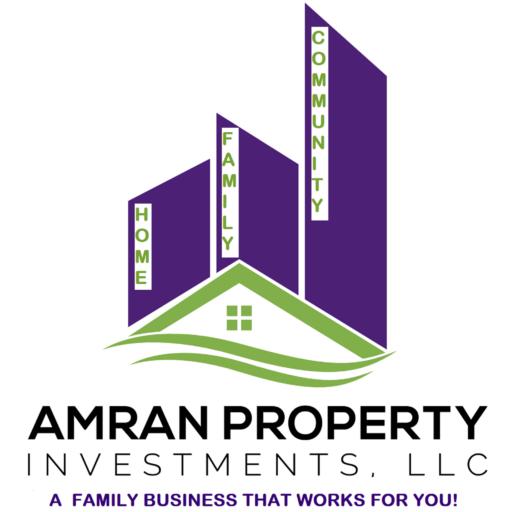
Handling Property Damage: A Landlord’s Guide for Winston-Salem Rental Properties
As a landlord in Winston-Salem, NC, facing damage to your rental property can be a stressful and challenging situation. Questions may arise: How should I address the damage? What are my rights as a landlord? In this comprehensive guide, we’ll walk you through the steps to take if your tenants cause damage to your valuable investment. But, what should you do if your tenants cause damage to your rental property?
Assessing the Extent of the Damage:
Before taking any action, assess the extent of the damage caused by your tenants. Is it a minor issue that can be easily repaired, or does it require more substantial intervention? Understanding the scope of the damage is the first step in formulating an effective response.
Communicating with Your Tenants:
Initiate communication with your tenants to gather information about the cause of the damage. Were the damages accidental, or is there evidence of neglect or intentional harm? Understanding the circumstances will inform your approach to resolving the issue.
Reviewing Lease Agreement and Legal Rights:
Consult Your Lease Agreement:
Review the terms of your lease agreement to determine the responsibilities of both parties regarding property maintenance and repairs. Lease agreements often outline tenant obligations, providing a basis for addressing property damage.
Know Your Legal Rights:
Familiarize yourself with North Carolina landlord-tenant laws. Understanding your rights and obligations as a landlord will empower you to take appropriate legal actions, if necessary, to address the damages caused by your tenants.
Taking Practical Steps:
Documenting the Damage:
Thoroughly document the damages with photographs and written descriptions. This documentation will serve as crucial evidence in case legal action becomes necessary. Ensure that the documentation is accurate and comprehensive.
Notifying Your Insurance Provider:
If the damage is extensive, contact your insurance provider to discuss coverage options. Be transparent about the circumstances, and provide the necessary documentation to support your claim. Insurance coverage can help mitigate financial losses resulting from tenant-caused damage.
Resolving the Issue Amicably:
Communicate Expectations:
Clearly communicate your expectations for repairs with your tenants. If they are responsible for the damages, discuss a reasonable timeline for repairs to be completed. Maintaining open communication can foster a cooperative atmosphere during the resolution process.
Coordinating Repairs:
Coordinate repairs promptly to prevent further deterioration of the property. Whether you or your tenants are responsible for the repairs, addressing the issue promptly is essential to maintaining the property’s value and habitability.
Tenant Responsibility
Once your tenants cause damage to your NC rental property and you have determined the cause, you will need to take steps to ensure the tenant pays the repair expenses they are responsible for following the terms outlined in the rental agreement. Often landlords deduct the total costs for such damages from security deposits at the end of the lease agreement. If the damage is extreme, you may need to take legal action against the tenants. Should your attorney or insurance company request the information, you will require photographic evidence and documentation of the damage and keep any estimates and receipts from the repairs.
Landlord Responsibility
If your tenants continually cause damage to your NC rental property, you should examine your property management skills and responsibility in maintaining tenant communications. For example, tenants may learn that you simply do not respond to their calls, causing minor problems to become significant damage. Middle-of-the-night phone calls and disputes over parking spaces can become irksome, but these little things matter more than you may realize. Building solid relationships with tenants can help avoid issues with deliberate damage and help maintain the integrity of your property.
Conclusion:
Dealing with tenant-caused damage requires a strategic and measured approach. By assessing the damage, understanding legal rights, and taking practical steps, you can navigate the situation with clarity. Communication is key throughout the process, allowing for amicable resolutions that benefit both landlords and tenants in Winston-Salem.
There is a great deal to learn about the real estate investment business. While everything can look great about your investment property on paper, dealing with people is not so cut and dried as working with numbers. Whatever you do, do not skip any step in screening tenants, especially checking references and contacting previous landlords. Even with the most up-to-date and thorough screening processes, landlords can expect even the best tenants to cause some damage.
Tenants are the life bread of your business plan, and you must understand what kind of trouble you may face if you lack previous property management and don’t have strong people skills. By taking the time to understand the consequences, you will know where to focus your time and energy, and resources to avert damage to your investments before it ever occurs. Read on to discover what to do if your tenants cause damage to your NC rental property.
Amran Property Investments, LLC
Working with Amran Property Investments, LLC makes it easy to be a landlord. Before your tenants cause damage to your NC rental property, why not let the pros at Amran Property Investments, LLC help you with your property management game? Amran Property Investments, LLC knows the laws that protect landlords like you and can help you with your screening process, rental agreements, and every other aspect of managing your investment properties, lowering the overall risks of damage ever happening. From real estate investment and exit strategies to locating the best rental properties in NC, Amran Property Investments, LLC can help you build your skills; Amran Property Investments, LLC makes it easy to be a successful landlord! Amran Property Investments, LLC has a full-service team of the most highly regarded experts from every walk of the real estate industry. Amran Property Investments, LLC can do it all or work with you to help you manage your properties. Let Amran Property Investments, LLC help you keep your tenants happy and reduce your turnovers and repair expenses. Contact Amran Property Investments, LLC at (336) 715-3931.
